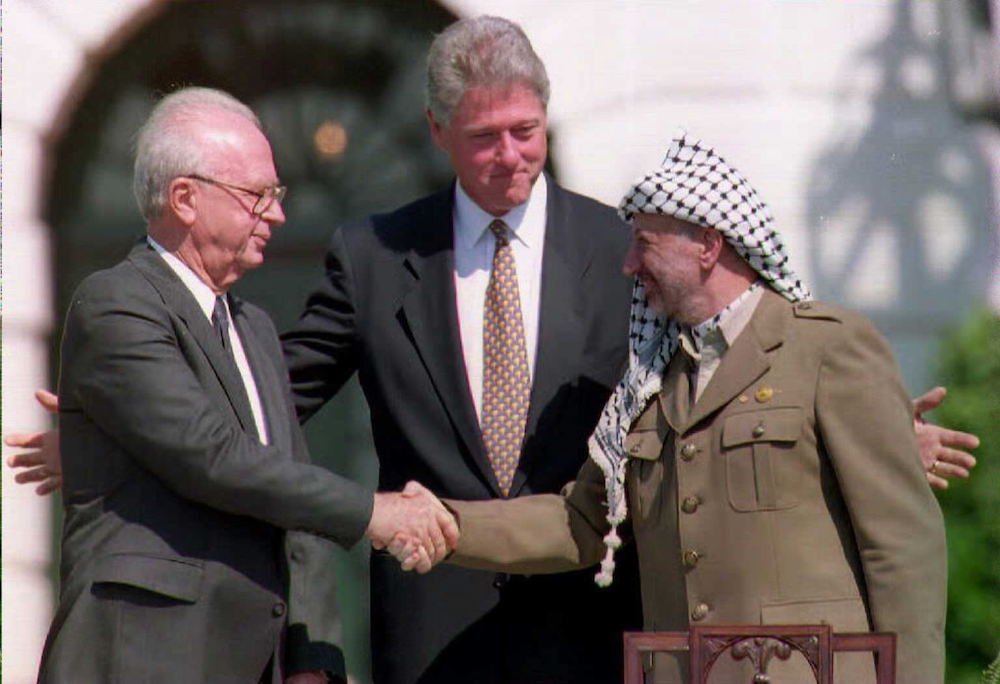
- ARAB NEWS
- 06 Jul 2025

It is easy for most Arabs to criticize the peace accord signed by the UAE and Israel, especially considering that Israel and the Palestinians have long records of hostility against each other. It is much harder to see the silver lining that exists in the deal, which could change the dynamics of the environment of fear, hatred and violence that has dominated relations between the Palestinians and the Israelis since the 1940s and has prevented the Palestinians from achieving statehood.
Israel’s policies have been driven by fear of the Palestinians and the Arabs. Many believe the Palestinians want to turn the clock back to before Israel’s creation in 1948. Other Israeli activists and leaders have supported and fought for compromise with the Palestinians, but their efforts were derailed by violence committed by the extremists who oppose peace.
But if those on either side who support genuine peace based on justice, the rule of law and fairness could replace the fanatics and violent extremists, they could restore the brief atmosphere of hope that Yitzhak Rabin and Yasser Arafat brought to the embattled biblical lands with their 1993 handshake.
The image of Rabin and Arafat shaking hands on the White House lawn was more threatening to the extremists than the actual peace accords that were signed that day.
This is because, once Israelis and Palestinians can respect each other, any peace treaty becomes almost meaningless. Two sides that respect each other treat each other with fairness and justice. We would have had two states by now if that environment had been allowed to continue.
However, Israeli extremist Yigal Amir assassinated Rabin in 1995 to destroy the atmosphere of peace that he and Arafat were trying to create. Even before Amir threw the Israeli-Palestinian peace process into disarray, another Jewish settler fanatic, Baruch Goldstein, took an automatic weapon into the Ibrahimi Mosque in Hebron on Feb. 25, 1994, and murdered 29 Muslims who were at prayer and wounded 125 others.
A Palestinian state doesn’t exist today because the extremists on both sides have prevented it with their rhetoric and terrorism.
Ray Hanania
In response, Hamas launched the first of what became a wave of suicide bombings, killing eight Israelis at a bus stop in Afula. Hamas’ suicide bombings became the cornerstone of the extremist resistance against peace with Israel.
Hamas’ violence, in turn, empowered the Israeli extremists, who used the widespread anger to take control of Israel’s government, swinging power from the Rabin moderates to the extremists led by Benjamin Netanyahu and Ariel Sharon, both disciples of Likud founder Menachem Begin. Begin was a former terrorist leader who headed up the Irgun militia that murdered more than 100 civilians at Deir Yassin in 1948.
Netanyahu, who was accused by Rabin’s widow Leah of creating an atmosphere of hatred that motivated Amir to kill her husband, became prime minister in 1996.
Sharon, who made a name for himself when he ordered the killing of 69 men, women and children in Qibya in the West Bank in 1953, succeeded Netanyahu in 2001. Netanyahu returned to office 2009 and has been prime minister ever since.
Both have done everything in their power to unravel the Rabin-Arafat accords and block peace based on two states, creating an atmosphere of rejectionism and extremism.
One could argue that the Israelis have been equally responsible for fanning the flames of violence, making it easy for Arabs to criticize the UAE-Israel deal. The truth is that a Palestinian state doesn’t exist today because the extremists on both sides have prevented it with their rhetoric and terrorism. Imagine if the extremists could be replaced by clear-thinking moderates who want peace.
Jamal Al-Musharakh, the director of the UAE Foreign Ministry’s Policy Planning Department, last week discussed such a vision of creating an environment of peace in order to end the violence that has consumed the Palestine-Israel conflict and push aside the extremists on both sides.
Many may still disagree with the UAE’s decision, but why not give it a chance? Over the past 72 years, the Arabs have confronted Israel’s violence with their own — an approach that has failed. I would argue that the violence has overshadowed the justice of the Palestinian cause and replaced it with the false perception that the Palestinians do not want genuine peace.
The extremists can continue to believe that using violence will one day allow them to win and take control of everything. That misguided belief is a myth, but it has fueled the anger and hatred that has made violence appear to be the only choice. Violence is not the only choice, and poor public relations have put the burden of this violence on the backs on the Palestinians.
If we can create a new atmosphere of peace, we might be able to push back the extremists, bring the moderate successors of Rabin and Arafat into power and build a future in which the Palestinians and Israelis live together in a two-state environment of sharing and respect.
We have given violence a chance for far too long. Why not give peace a chance?